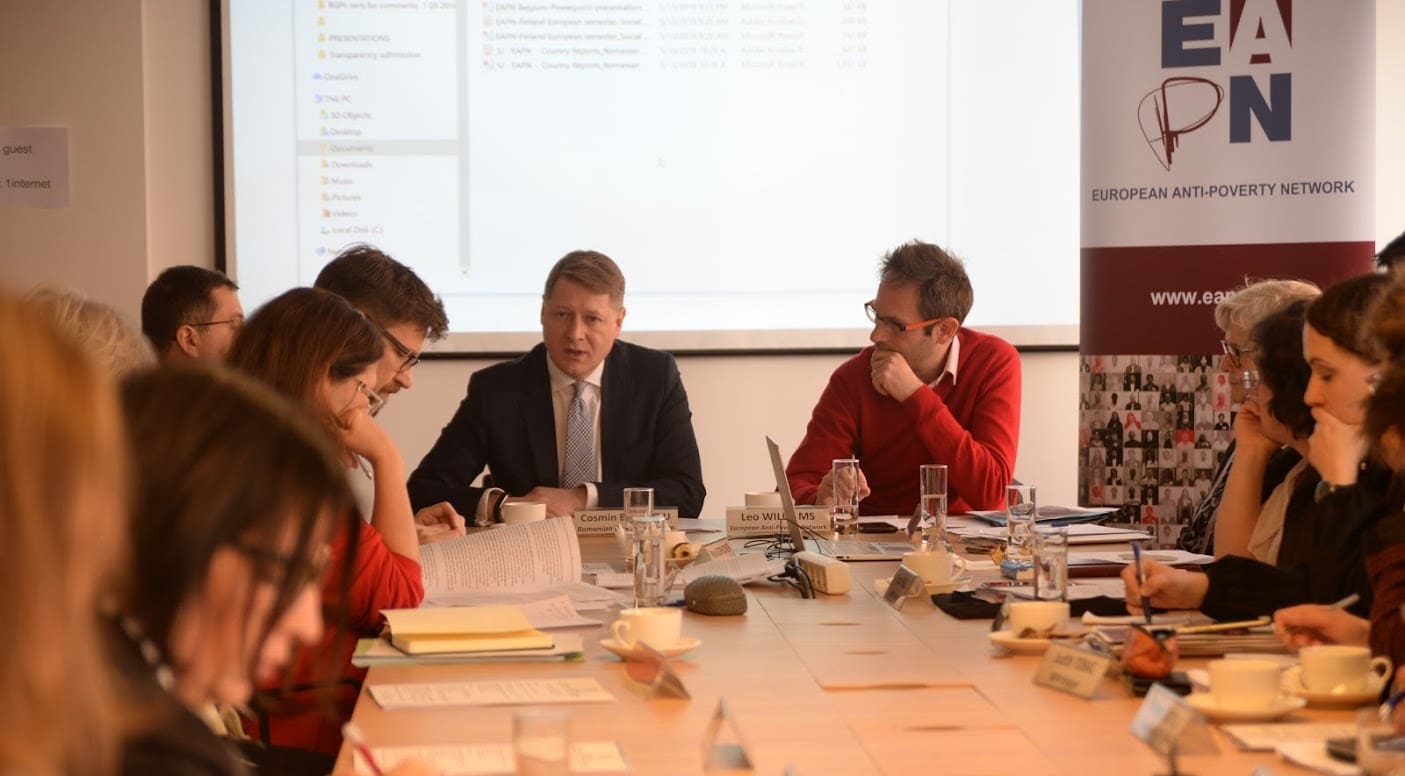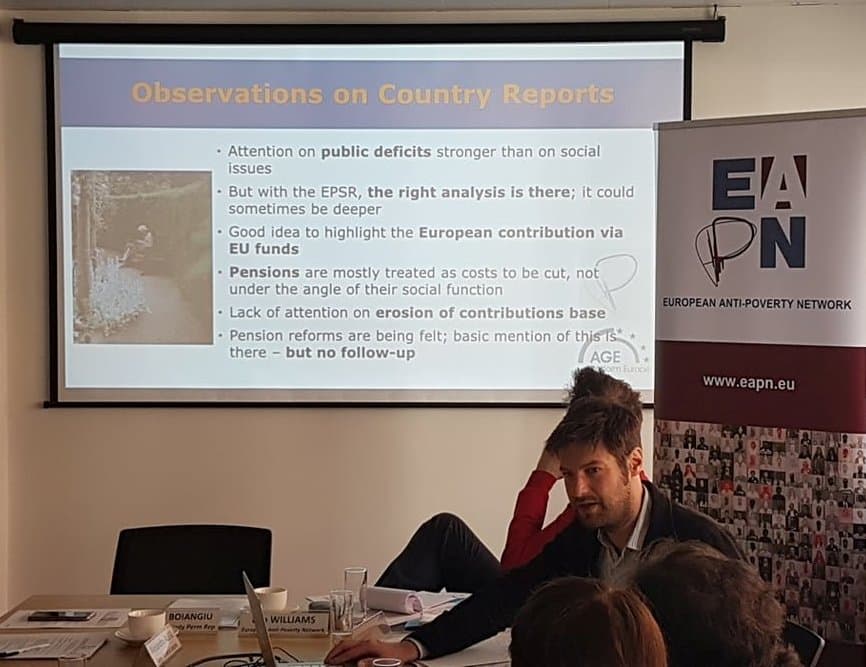
photo by EAPN
As a member of the European Anti-Poverty Network (EAPN), AGE was invited at a roundtable discussion with Romanian Permanent Representations and the European Commission on the European Pillar of Social Rights and the European Semester.
The event was organized by EAPN to facilitate an exchange between some of its national members and the corresponding social attachés in the Permanent Representations in Brussels and the European Commission. It was hosted by the Permanent Representation of Romania to the European Union, country which currently holds the rotating Presidency of the European Council.
Read a short report of the event on EAPN website
Social investment vs financial sustainability
During the meeting AGE Policy Officer, Philippe Seidel, highlighted the poverty rates and the challenges faced by older people in Europe, specifically older women, and shared AGE’s analysis of the Country Reports 2019.
AGE members report that, while the risk of poverty and social exclusion for the overall population is on a downward trend, there is a higher risk for people aged 55-64, and an increase of risk of poverty and social inclusion for people aged 75+, with an even higher risk for women in this age group. Poverty and social exclusion rates for older persons are rising again in the past three years. The cost of long-term care is a real concern.
There has been a noticeable shift of language in the Country Reports, with the introduction of the Social Pillar. However, we notice that the objective of reducing public deficit prevails over the social analysis. Our Belgian members reported on their Country Report identifying a contradiction between calling for public investments and expressing concern for financial sustainability. Pensions are seen, in the vast majority of cases, from a cost-containing perspective, rather than for their social function, fulfilling the intergenerational contract and protecting from old-age poverty. Not enough attention is paid to the erosion of the contribution base. The analysis needs to go beyond the spending side and look at what do people need to buy for a dignified life? This should include the rising cost of housing, and transportation, which is crucial for older people to stay socially engaged, and is particularly an issue in rural areas. In many member states, the privately-borne cost of long-term care is far above even average pension levels.
The main concerns reported by AGE members include: the oldest old, pensions’ indexation, older women and older self-employed, cost of health and long-term care.

Philippe Seidel sharing AGE’s analysis
For further information on this event and AGE work on poverty and social inclusion, please contact Philippe Seidel: philippe.seidel@age-platform.eu






